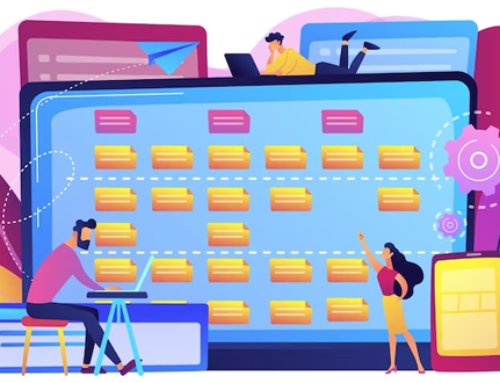About Recruiter Web application
A Recruiter Web Application is a powerful tool that enables recruiters to easily manage their recruitment process. It allows recruiters to quickly search and filter through potential candidates, schedule interviews and manage job postings, all from one centralized platform. Recruiter Web Applications are designed to streamline the entire recruitment process, making it easier and more efficient for recruiters to find the best candidates for their open positions.
Recruiter Web Applications also provide recruiters with valuable analytics, enabling them to track and measure their recruiting efforts. The analytics provide recruiters with detailed insights into the performance of their recruitment efforts, such as the number of applicants, the number of interviews conducted, and the number of hires. These insights can be used to inform future recruitment strategies and ensure that recruiters are making the most of their recruitment efforts.
Another key benefit of Recruiter Web Applications is their ability to integrate with other recruitment tools such as Applicant Tracking Systems (ATS). This enables recruiters to easily transfer data from one system to another, allowing them to access all their recruitment data in one place. Furthermore, Recruiter Web Applications are often cloud-based, meaning they can be accessed from anywhere with an internet connection. This makes it easy for recruiters to manage their recruitment process, even when they are away from the office.
Overall, Recruiter Web Applications are an essential tool for any recruiter, providing an efficient and effective way to manage their recruitment process. Recruiters gain access to a range of powerful features, enabling them to quickly find the best candidates, track and measure their recruitment efforts, and easily integrate with other recruitment tools. Recruiter Web Applications are the perfect solution for any recruiter looking to streamline their recruitment process.
Why is a recruiter web application used?
- Personalized Candidate Experience:
Recruiter web applications provide a personalized experience for job seekers by connecting them with employers that match their specific qualifications and interests. This allows recruiters to quickly and efficiently find the best candidates for open positions.
- Automated Job Applications:
With a recruiter web application, jobseekers can easily upload their resumes, fill out job applications and submit them directly to employers. This eliminates the need for manual data entry and saves time and money.
- Job Matching:
Recruiter web applications can match job seekers with employers based on job requirements and qualifications. This helps to ensure that recruiters are selecting the most qualified candidate for each job.
- Interview Scheduling:
Recruiter web applications also allow recruiters to schedule interviews with job seekers. This makes it easier for recruiters to manage multiple job openings and candidates.
- Performance Tracking:
Recruiter web applications allow recruiters to track the performance of each job seeker. This helps recruiters to identify the most successful job seekers and determine whether they are a good fit for the position.
Types of recruiter web Applications
- Applicant Tracking System (ATS)
This is a software application that helps recruiters to manage, track and automate all their recruitment activities. It allows recruiters to post job openings, review resumes, screen candidates, and schedule interviews. It also helps employers to track and store applicant information, such as resumes, cover letters, and other documents.
- Applicant Portal
This is a web-based platform that allows job seekers to search for jobs, submit resumes, create profiles, and track their job search progress. It also provides employers with a centralized hub to post job openings, review resumes, and communicates with potential candidates.
- Video Interview Platforms
This type of software allows recruiters to conduct remote interviews with candidates. It provides a range of features, such as two-way video, text chat, file sharing, and scheduling. This enables recruiters to quickly evaluate candidates and make faster hiring decisions.
- Social Recruiting Platforms
This type of software helps recruiters to source and engage with passive candidates on social media. It provides features such as job posting, profile matching, and messaging, which enable recruiters to quickly identify and engage with qualified candidates.
- Automated Reference Checking Platforms
This type of software helps recruiters quickly and accurately check references for potential candidates. It provides features such as automated questionnaires, screening forms, and analytics, which enable recruiters to quickly assess a candidate’s suitability for a job.
Important about the recruiter web application
- User-Friendly Interface:
A recruiter web application should have an easy-to-use, intuitive interface that allows users to easily find information, search for candidates, and manage their account settings.
- Automated Job Postings:
The ability to post jobs on multiple job sites quickly and easily is essential for recruiters. Automating the job posting process can help save time and ensure that jobs are posted quickly.
- Resume Parsing:
A resume parsing feature can save recruiters a tremendous amount of time. This feature allows recruiters to quickly and accurately parse resumes into usable data.
- Applicant Tracking System:
An applicant tracking system can help recruiters easily track, organize, and manage candidate information. This can help recruiters quickly identify and track the progress of the most qualified candidates.
- Job Sourcing:
Job sourcing features allow recruiters to quickly locate and contact potential candidates. This can help recruiters quickly find and contact the most qualified candidates.
- Email Integration:
Email integration allows recruiters to quickly send emails and notifications to potential candidates. This can help keep candidates informed of job openings and other recruitment activities.
- Reporting and Analytics:
Recruiters need to be able to easily track and analyze recruitment activities. Reporting and analytics features can help recruiters quickly identify where the most qualified candidates are coming from and help them make better recruitment decisions.
- Social Media Integration:
Social media integration allows recruiters to identify and contact potential candidates on social media networks quickly. This can help recruiters connect with a wider range of candidates.
- Video Interviews:
Video interviews can help recruiters quickly assess a candidate’s skills and qualifications without having to meet them in person. This can help recruiters save time and money while still finding the best candidates.
- Mobile Accessibility:
Mobile accessibility allows recruiters to access the application from their mobile devices, no matter where they are. This can help recruiters stay connected with potential candidates, even when they are away from their desks.
Features
- Applicant Tracking and Hiring Pipeline:
One of the top features of a recruiter web application is the ability to track applicants and manage the entire hiring pipeline. This feature allows recruiters to easily manage their recruitment process by tracking applicants, scheduling interviews, and tracking progress from one stage to the next.
- Automated Workflows:
Automated workflows enable recruiters to streamline their recruitment process by creating tasks that can be automated. This feature allows recruiters to save time and resources by enabling them to manage their recruitment process more efficiently.
- Reporting and Analytics:
A recruiter web application should also have reporting and analytics capabilities. This feature allows recruiters to gain insights into their recruitment process, analyze data, and make informed decisions about their recruitment strategy.
- Applicant Screening and Evaluation:
Applicant screening and evaluation is another top feature of a recruiter web application. This feature allows recruiters to quickly assess and evaluate applicants to determine their suitability for the role.
- Collaboration Tools:
Collaboration tools are essential for recruiters to work together and stay organized. This feature allows recruiters to share information with each other, track progress, and ensure that tasks are completed on time.
- Email Integration:
Email integration is another important feature of a recruiter web application. This feature allows recruiters to send emails directly from the application, track email responses, and monitor progress.
- Mobile Access:
Mobile access is a must for recruiters who need to access their recruitment data on the go. This feature allows recruiters to stay up to date with their recruitment process from any device.
- Candidate Management:
A recruiter web application should also include a candidate management feature. This feature allows recruiters to store and manage candidate information, schedule interviews, and track progress from one stage to the next.
- Social Media Integration:
Social media integration is another useful feature of a recruiter web application. This feature allows recruiters to search for and find potential candidates on social media platforms.
- Integrations:
Integrations are essential for recruiters to stay connected to their recruitment process. This feature allows recruiters to connect with other applications, such as job boards, resume databases, and more.
Benefits of recruiter web application
- Increased efficiency:
Recruiter web applications can help streamline the recruitment process by automating most of the manual data entry and communication tasks. This helps recruiters quickly identify and reach out to the best candidates for a job, reducing the amount of time needed to fill vacancies.
- Improved candidate experience:
By leveraging a web application, recruiters can provide a more personalized experience for candidates. This includes providing detailed job postings, using automated emails to keep them informed of their progress in the recruitment process, and giving them the ability to access their application status at any time.
- Enhanced data tracking:
Recruiter web applications make tracking information related to the recruitment process easier. This includes data on candidate applications, interviews, rejections, and hires. This data can be used to gain insights into the recruitment process, identify trends, and make improvements.
- Cost savings:
Web-based solutions for recruiters can lower recruitment costs by removing the requirement for human labor and paper-based procedures. Over time, this may save you a lot of money.
- Improved candidate engagement:
Recruiter web applications can help recruiters engage with the best candidates for a job by providing them with detailed information about the job and company. This can help attract and retain the best talent.
- Smarter decision-making:
Recruiter web applications can help recruiters make smarter decisions by providing insights into the recruitment process and identifying patterns in the data. This can help recruiters make better decisions about which candidates to hire and which ones to pass on.
- Scalability:
Recruiter web applications can be easily scaled up or down to meet changing recruitment needs. This can help recruiters manage the recruitment process more effectively.
- Accessibility:
Recruiter web applications can be accessed from anywhere, allowing recruiters to quickly respond to potential candidates. This can help recruiters stay on top of the recruitment process and make decisions more quickly.
- Streamlined collaboration:
Recruiter web applications can help recruiters collaborate more effectively by allowing them to easily share data and documents with other members of the recruitment team.
- Increased security:
Recruiter web applications can help ensure the security of sensitive data by encrypting data and limiting access to authorized personnel. This can help protect the privacy of candidates and the company.
Limitations
- Limited Accessibility:
Recruiter web applications are often limited in terms of who can access them. This can be a major disadvantage, as it limits the recruiter’s ability to reach out to potential candidates.
- Poor User Experience:
Many recruiter web applications are poorly designed and lack the necessary features to make them user-friendly. This can make it difficult for recruiters to effectively use the application and find the right candidates.
- Expensive:
Recruiter web applications can be quite expensive, making them out of reach for smaller companies.
- Outdated Technology:
Many recruiter web applications are based on outdated technology, which can make them difficult to use and limit their effectiveness.
- Security Issues:
Recruiter web applications are vulnerable to security breaches, which can lead to potential data loss and other issues.
- Lack of Features:
Many recruiter web applications lack important features, such as the ability to easily track applicants and create job postings.
- Difficult Integration:
Integrating a recruiter web application with existing systems can be a challenge, as it often requires technical knowledge and expertise.
- Unreliable Performance:
Poor performance is a common issue with recruiter web applications, which can lead to delays and other issues.
- Lack of Support:
Many recruiter web applications lack the necessary support to help users with any problems they might have.
- Limited Customization:
Most recruiter web applications are not customizable, making it difficult to tailor the application to specific needs.
Conclusion
After testing the Recruiter Web Application, we have reached the conclusion that it is an intuitive, efficient, and user-friendly tool for tracking job applicants and managing recruitment processes. The application provides a central platform for recruiters to store and organize job applications, and its streamlined workflow enables them to efficiently manage the recruitment process from start to finish. Additionally, the application’s analytics and reporting features enable recruiters to gain valuable insights into their recruitment process and make informed decisions. Overall, the Recruiter Web Application is a useful and powerful tool for recruiters.
FAQ
You can create job postings by navigating to the ‘Create Job Postings’ page in the Recruiter Web Application. Once you are there, you will be guided through the process of creating a new job posting.
You can manage application status by navigating to the ‘Manage Applications’ page in the Recruiter Web Application. Here, you can view applications and update their status as needed.
You can schedule interviews by navigating to the ‘Schedule Interviews’ page in the Recruiter Web Application. Here, you can select a candidate, choose an interview time, and send an invitation to the candidate.
You can track job openings by navigating to the ‘Track Job Openings’ page in the Recruiter Web Application. Here, you can view all of your open job postings and view the status of each opening.
To view job postings, log in to your recruiter account and go to the “Job Postings” section. Here you can search for and review job postings.








